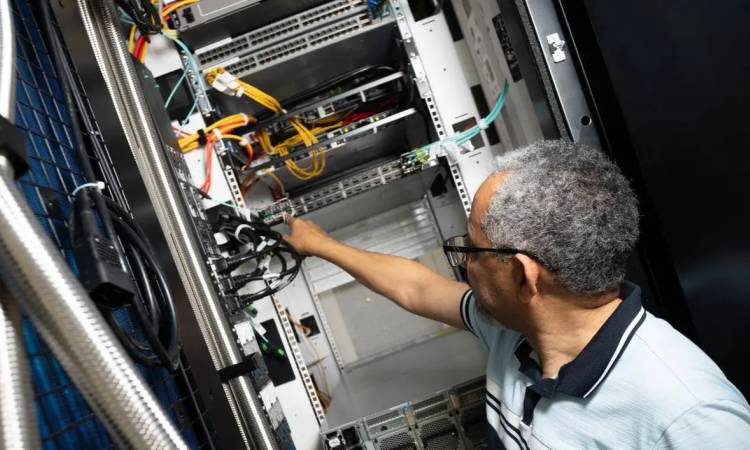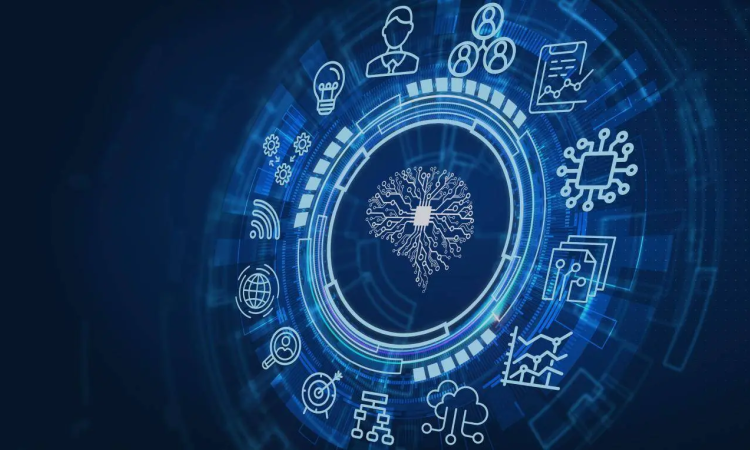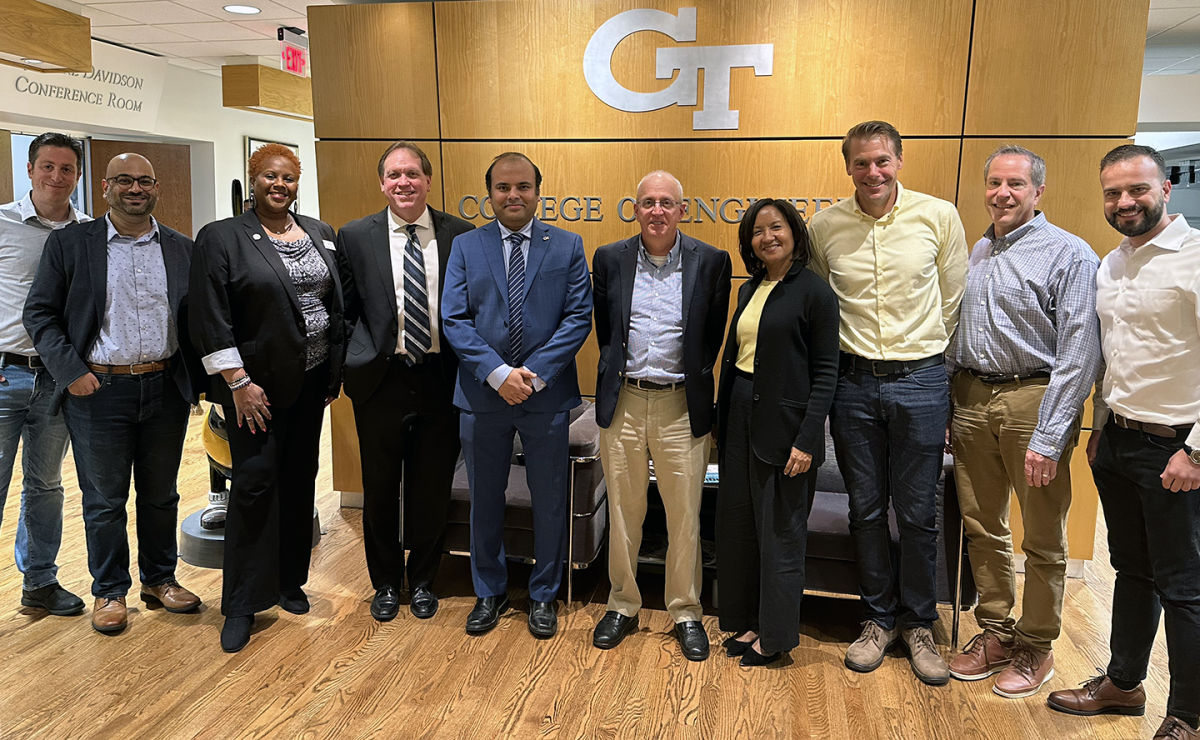
Bill Dally, chief scientist at NVIDIA, visited the Georgia Tech campus on April 10, 2024, to deliver a Distinguished Lecture hosted by the School of Electrical and Computer Engineering.
His visit coincided with the announcement of the AI Makerspace, a new purpose-built artificial intelligence supercomputer hub designed for student use. The initiative was launched in collaboration with NVIDIA, and is powered by 160 of the companies H100 Tensor Core GPUs.
“The expertise and insights Bill provided during his visit to Georgia Tech were invaluable, particularly on such a momentous occasion as the announcement of the AI Makerspace,” said Arijit Raychowdhury, the Steve W. Chaddick School Chair of ECE. “He not only enriched our understanding of hardware but also sparked new ideas for collaboration between academia and industry. We're grateful for his presence and eagerly anticipate the possibilities that lie ahead."
During his lecture on "Directions in Deep Learning Hardware," Dally provided valuable insights into the evolving landscape of hardware as artificial intelligence (AI) continues to shape the field. He highlighted some of NVIDIA's recent advancements, including the company's recently announced Blackwell architecture, while addressing the challenges and opportunities that lie ahead.
A Q&A session hosted by ECE Professor Justin Romberg allowed for further exploration of key topics. Dally gave particularly insightful comments on what current ECE students should be pursuing academically.
“[In] this age of domain-specific accelerators, what’s really valuable is someone who is not only a master of electrical engineering, but also has domain specific knowledge,” Dally said. “Pick a domain and become an expert at it where you can then do hardware and software co-optimization.”
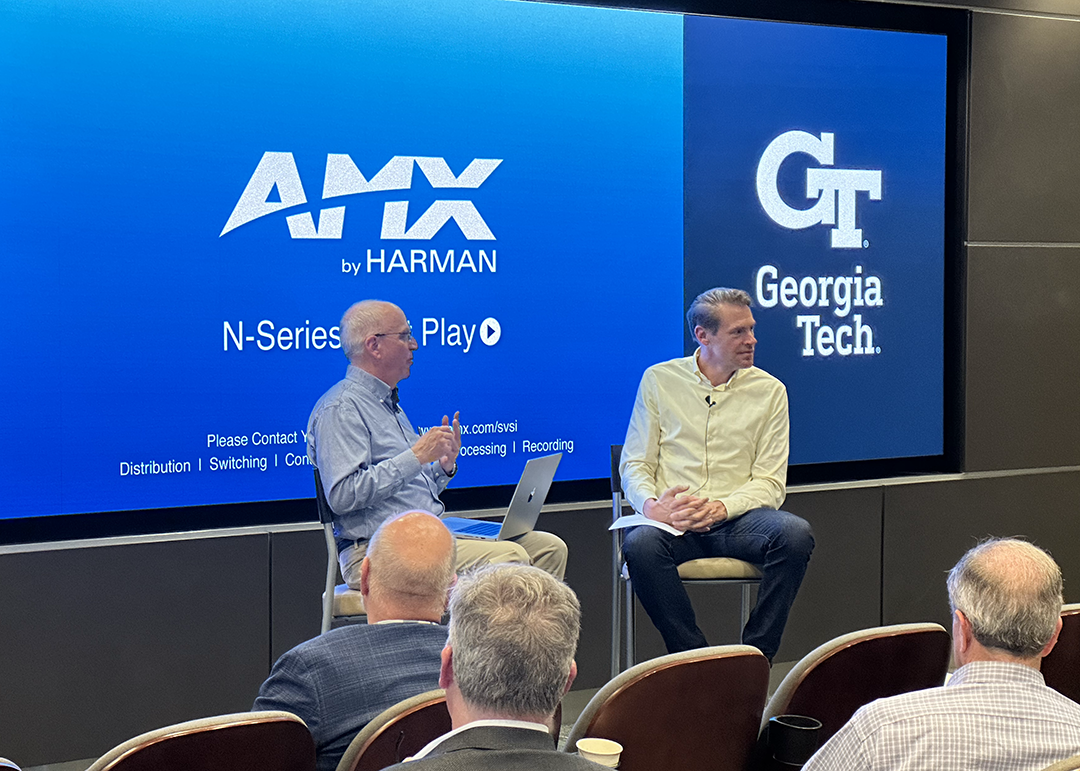
Bill Dally and Justin Romberg during the Q&A portion of the ECE Distinguished Lecture.
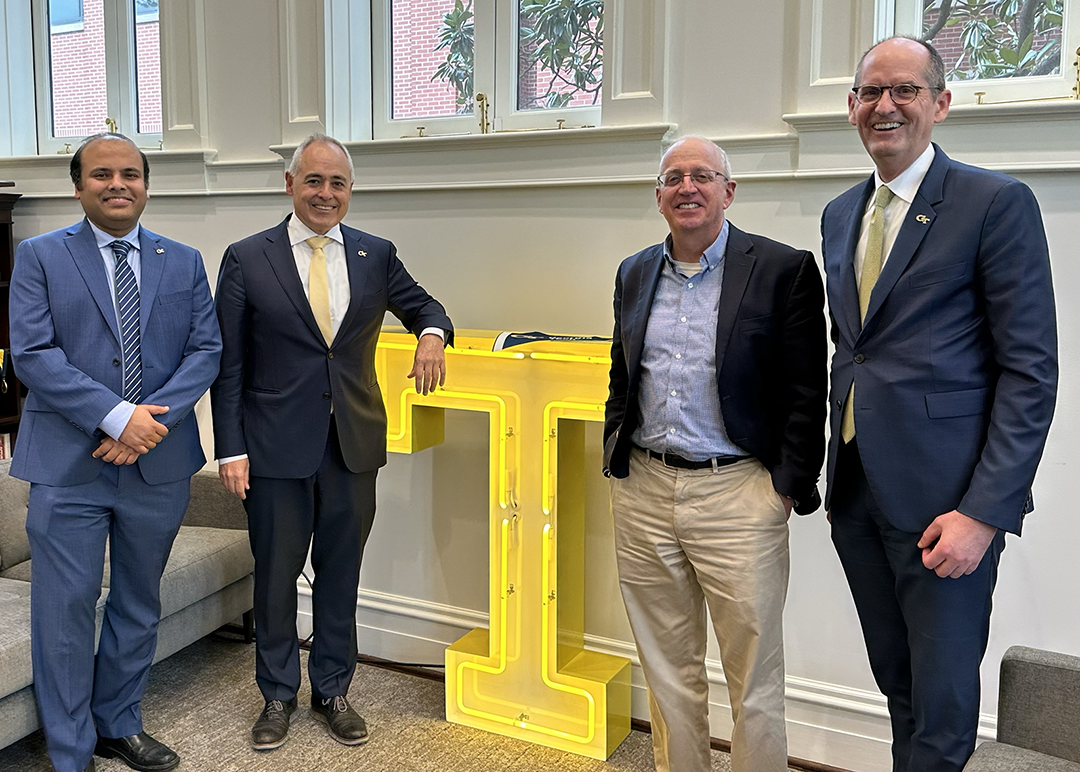
Chair of ECE Arijit Raychowdhury, President Àngel Cabrera, Bill Dally, and Provost Steve McLaughlin.
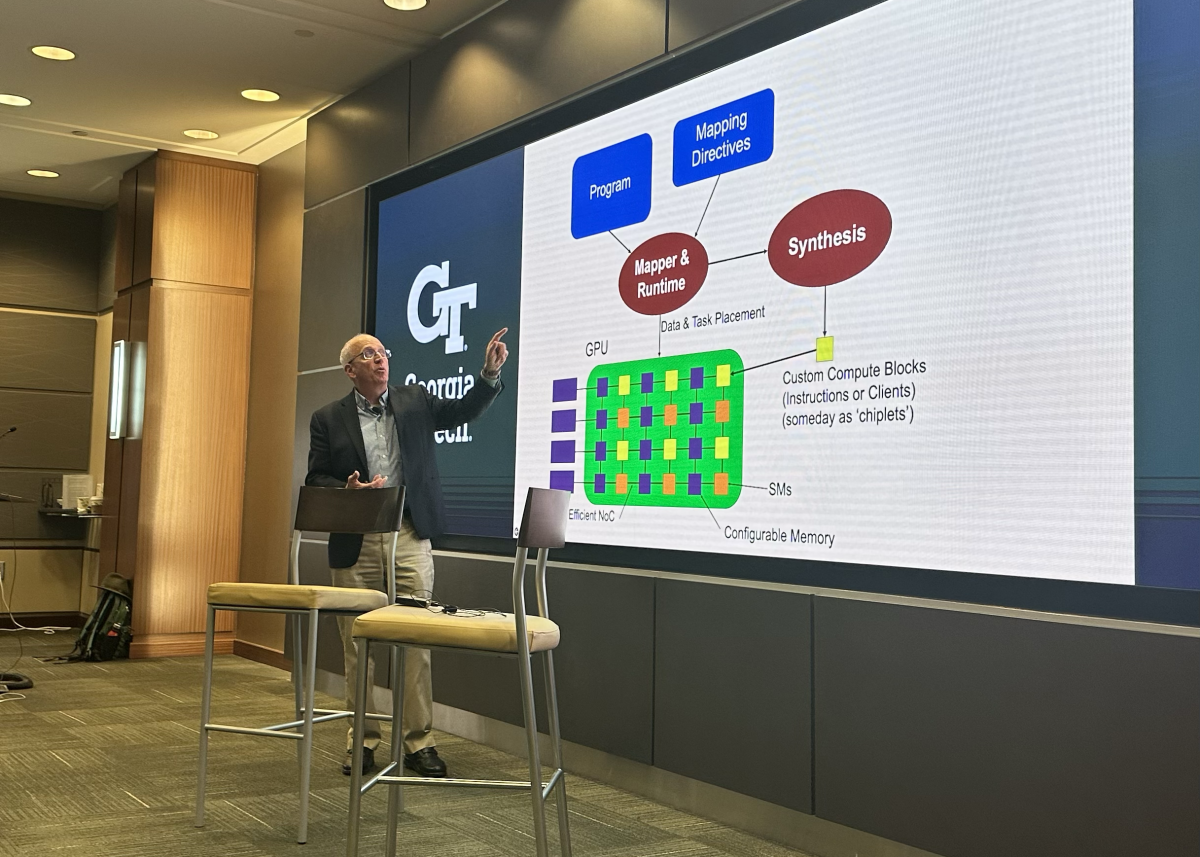
Bill Dally during his lecture on "Directions in Deep Learning Hardware."
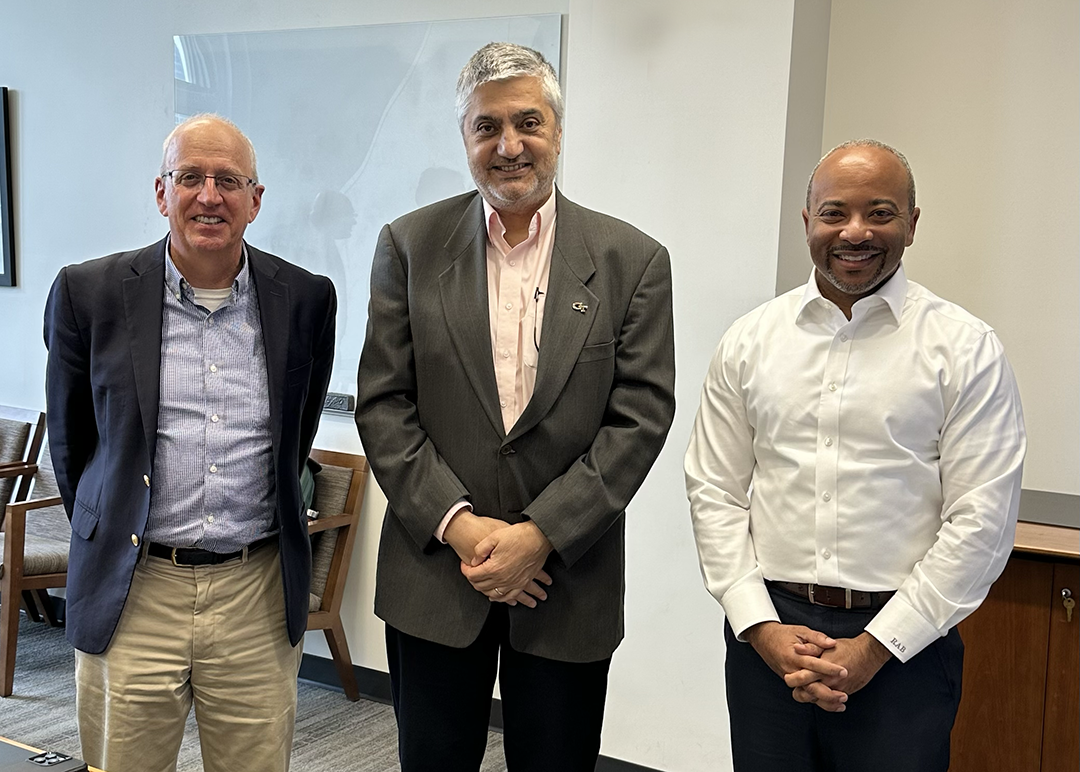
Bill Dally, Executive Vice President of Research Chaouki Abdallah, and College of Engineering Dean Raheem Beyah.
He also encouraged students to explore NVIDIA as an employer.
“When I think of anyone looking their first job, two key aspects come to mind: working on a state-of-the-art problem and being surrounded by good, intelligent people,” he said. “I can’t think of a better place for both those than NVIDIA.”
In addition to his lecture, Dally engaged in discussions with Georgia Tech leadership, including President Àngel Cabrera, College of Engineering Dean Raheem Beyah, Executive Vice President of Research Chaouki Abdallah, and Provost Steve McLaughlin. The meetings served as opportunities to explore potential collaborations between NVIDIA and the university, fostering an environment of further innovation.
The day concluded with an ECE Faculty Discussion, where faculty members had the chance to dive deeper into technical topics and exchange ideas.
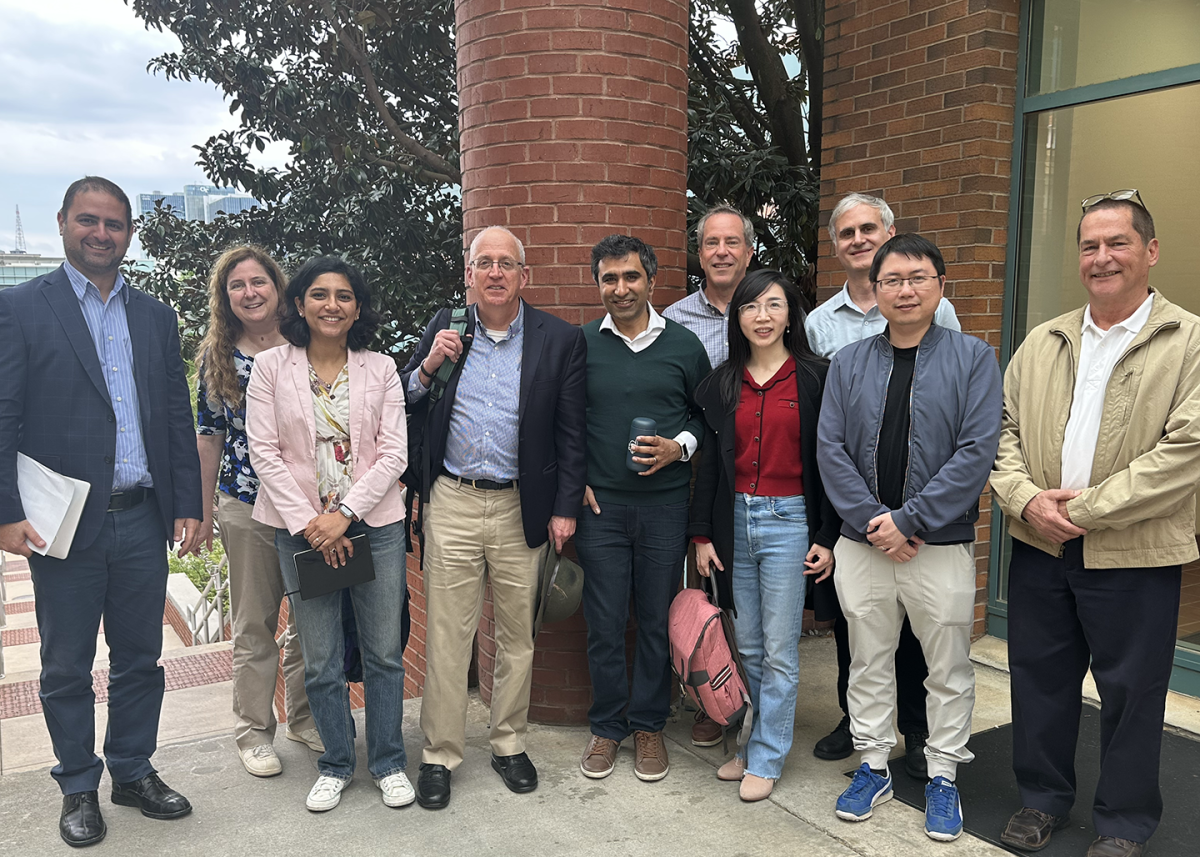
Bill Dally meeting with ECE faculty members.
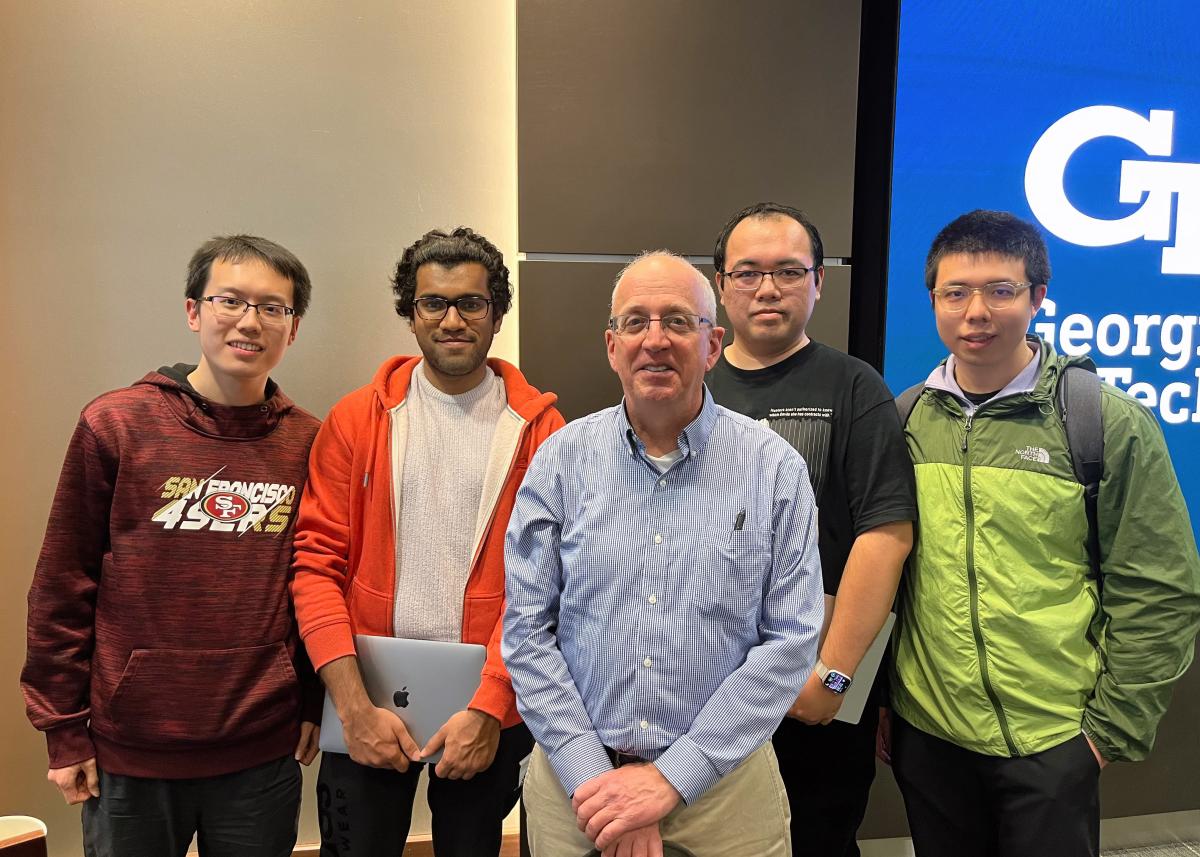
Bill Dally meeting with ECE Ph.D. students after the Distinguished Lecture.
RELATED ARTICLES
Georgia Tech Unveils New AI Makerspace in Collaboration with NVIDIA
By giving students access to powerful supercomputers, Georgia Tech will teach AI to undergraduates in a way unlike any other university in the nation.
The Year in Artificial Intelligence and Machine Learning
Georgia Tech's School of Electrical and Computer Engineering looks back on the pivotal year dominated by artificial intelligence and machine learning.
